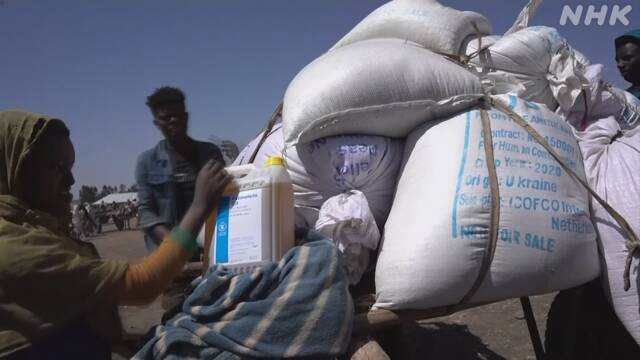Russia's invasion of Ukraine has raised concerns about food shortages, especially in Africa.
FAO = The Food and Agriculture Organization's "Food and Agriculture Organization", which is based on international trading prices for grains and other products, reached 159.3 points in March, the month following Russia's invasion of Ukraine.
This is 12.6% higher than the previous month, the highest number since we started collecting statistics in 1990.
It remained high at 157.4 points last month, indicating that the invasion of Ukraine has contributed to the rise in global food prices.
Especially in Africa, food prices continue to rise due to recent floods and droughts, outbreaks of locusts, and the effects of the new coronavirus. In some areas, staple food prices have risen by as much as 40% compared to the average over the last five years.
According to the IMF = International Monetary Fund, the proportion of "food" in households is 17% in developed countries, while it accounts for 40% in Africa.
For this reason, it is pointed out that soaring food prices have a great impact on the lives of Africans.
WFP says that the number of people suffering from food shortages in West Africa and Central Africa could be as high as 41 million, nearly four times as many as three years ago.

